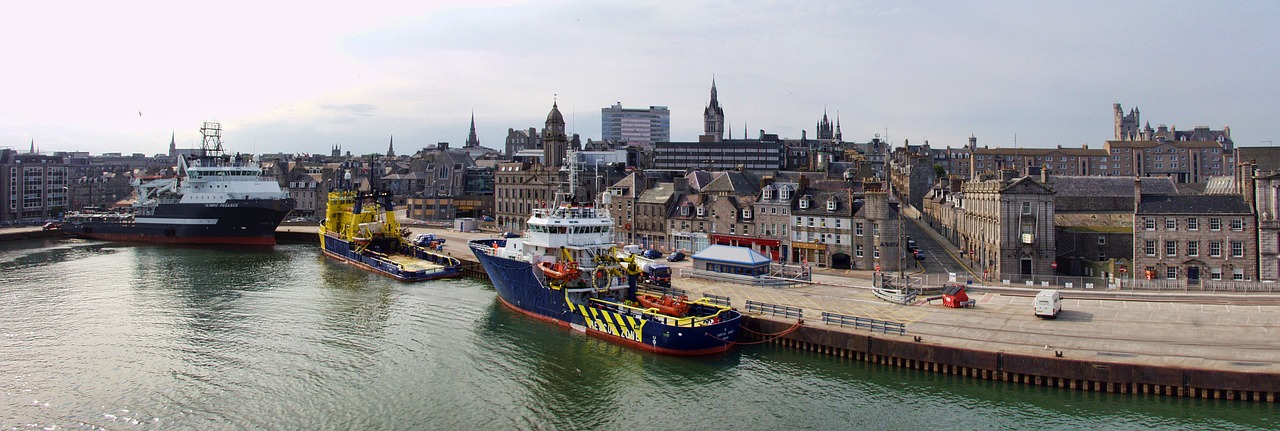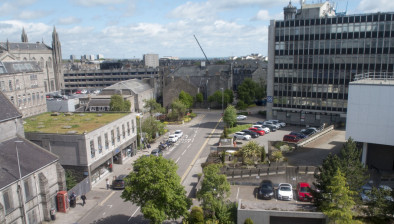Economic report maps out recovery route for Aberdeen
An independent report on the state of Aberdeen’s economy published today has outlined the city’s COVID-19 recovery plan.

Positioning the Aberdeen City Region as an attractive place to live, including a commitment to green energy, was described as the key to success in the years ahead. However, the Economic Policy Panel Report 2020 also stressed the importance of sustaining a partnership approach, including securing support from both the UK and Scottish Governments.
The panel encouraged Aberdeen to maintain its focus on planning for the long-term and to build on good progress in recent years on key issues such as investment in infrastructure, a focus on skills, energy transition, and economic diversification.
Aberdeen City Council co-leaders Councillor Jenny Laing and Councillor Douglas Lumsden welcomed the findings.
Councillor Lumsden said: “Today’s Economic Policy Panel report emphasises the need for Aberdeen to be at the forefront of Scotland’s ‘green recovery’ whilst demonstrating the importance of the city region to the UK’s and Scotland’s success.
“A commitment to combating climate change was the central theme of this year’s council budget and we have cut carbon emissions in recent years.
“The council has developed a Net Zero Vision and a Strategic Infrastructure Plan to leverage support for the region’s transition towards net zero. That will safeguard skills, create jobs for our young people and retain and attract new talent and investment here in Aberdeen.”
He added: “The report also that notes that a city’s attractiveness remains a driver of economic activity, so it’s reassuring that we have had the foresight to invest in the people and place.
“We have achieved much, but we have much to do. What’s made clear today is that local authorities can’t succeed on their own. To build resilience and future prosperity, Aberdeen needs the continuing support of the wider public sector and the private sector.”
As part of its response to the immediate impact of COVID-19, the council’s Urgent Business Committee unanimously approved a Socio-Economic Rescue Plan, which includes an Aberdeen City Council Business Charter.
Major capital projects being progressed in the city include the Energy Transition Zone and the Aberdeen Hydrogen Hub.
The Energy Transition Zone proposed for Aberdeen South Harbour is expected to accelerate the development of carbon capture technology and renewable energies, including capitalising on emerging opportunities in offshore wind, as well as promoting greener oil and gas production.
The Aberdeen Hydrogen Hub programme has the potential to catalyse growth in the use of renewable hydrogen across the transport sector and lay the foundations for use in other applications such as domestic/commercial heat and industry.
Councillor Laing added: “The emergence of COVID-19 has prompted an economic reset right around the globe, and there is no doubt COVID-19 has accelerated the need to future proof our economic success for the next generation and beyond.
“Building on previous panel recommendations, we identified a regional approach to combating climate change, producing a Net Zero Vision for Aberdeen and a Strategic Infrastructure Plan for Energy Transition.
“Despite tough economic conditions, investment continues in the North-east – in physical and social infrastructure, in energy and hospitality, as well as new industries such as the digital and creative sectors.
“I’m confident that with the continuing support of partners we’ll come through the current challenge and move forward on our economic, social and environmental transition journey.”
The report showed that world output had shrunk by over 10% between the start of 2020 and the summer. Even with a recovery underway, consensus forecasts point to the global economy being 5% smaller at the end of 2020 compared to 2019.
Aberdeen has faced a parallel challenge of oil price collapse, which was said to pose a fresh challenge to the region’s energy sector, coming only a few years after the last downturn.
Modelling by the Fraser of Allander Institute, based upon the industrial mix of each local authority, suggested that the Aberdeen economy may be more exposed to the immediate fallout from COVID-19 than other parts of Scotland. The report highlighted that in relation to notification of potential future redundancies, Aberdeen accounts for 35% of all Scottish notifications – some 6,400 jobs and more than four times the Edinburgh level and six times that of Glasgow.
Key panel recommendations included:
- A new Route Map for the Transformation of Aberdeen the Place, positioning the Aberdeen Region as an attractive place to live by re-imagining of key city centre public and private sector assets,including empty office, hotel and retail property;
- The need to continue to develop Aberdeen’s approach to diversification, skills, digital technology, connectivity with other economic centres and infrastructure investment, building on the progress made in recent years before the COVID-19 crisis;
- A continuing of the transition to net zero and moving the wider city economy to low carbon activities, including greener travel, enhanced energy efficiency, and provision of accessible and connected green space.










